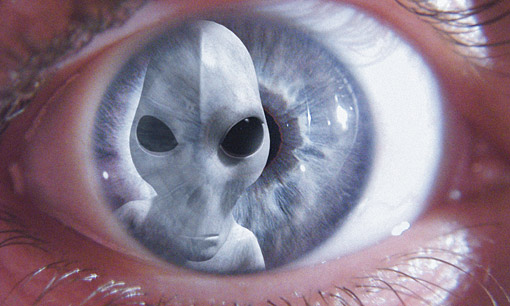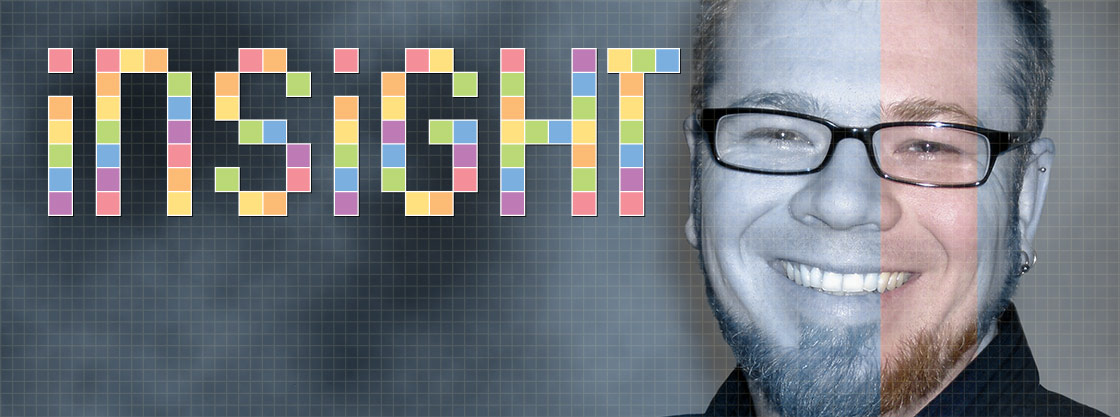
Image by Daniel Loxton with Jim W.W. Smith and Jason Loxton
Today I’ll ask a related question: why are skeptics a mixed group of magicians, psychologists, doctors, historians, science popularizers, artists, and so on?
Necessarily Multidisciplinary
Throughout history, attempts to tackle fringe subjects either singly or as a portfolio of interconnected topics have always tended to attract mixed groups of people with complementary expertise. The American skeptics scene of the late 19th and early 20th centuries attracted psychologists such as Joseph Jastrow and magicians such as Joseph Rinn, David Phelps Abbott, and Harry Houdini. When New York cracked down on the crooked psychic industry in the 1930s, law enforcement joined forces with skeptical magicians. (See my article “The Remarkable Mr. Rinn” and Junior Skeptic #46 for more.) When the fully modern skeptical movement was born in 1976, it united magicians, psychologists, science writers, journalists, philosophers, and other scientists, activists, and scholars besides. (The involvement of magicians is obviously an ongoing theme—appropriate for fields in which trickery is so common.)
This range of expertise is a natural consequence of the subject matter. Fringe claims by their nature call for a multidisciplinary approach, even when examined one at a time in isolation from other conceptually related claims.
The Complexity of Alien Abduction
Take, for example, this fact: quite a few people believe that they have been kidnapped by UFO aliens. How are we to approach this peculiar phenomenon? If the question is merely “Do I buy that?” then it’s easy enough to answer one way or the other based on our intuitions and assumed knowledge—”that’s ridiculous” or “Goddamn kidnapping aliens!” But if the question instead is “What is really going on here?” then that is considerably more complicated. Like most paranormal claims, alien abduction cannot be explained by a single convenient cause, nor understood fully from a single angle of inquiry. It’s complex.
Here are a few of the dimensions that bear useful insights on the topic of alien abduction:
Factual: It’s certainly relevant that there is evidence offered for alleged alien abduction (such as claimed “implants,” unusual scars, and of course the lived experience of abductees). It’s also relevant that some claims can be directly refuted by evidence (such as a person being in some other confirmed location at the time of their “abduction”) and likewise relevant that there’s an absence of the kinds of evidence we could presumably expect to eventually see if the claims were factually true (such as security camera footage of alien kidnappers). But this isn’t the whole story.
Physiological: As complex and interesting as debates about UFO evidence may be, these debates do little to tell us why some people believe they’ve personally had such experiences—believe to the point that recalling their abductions triggers the same physiological responses as victims of verifiable trauma. Research on abductees by Susan Clancy and others suggests that some abduction memories begin with actual physical experiences inexplicable to the experiencer—a notable contributor being the fairly common but frightening experience of sleep paralysis (likewise implicated in quite a few ghost encounters and experiences of “spiritual warfare” with demonic apparitions). Despite the frequent presence of hallucinatory content, sleep paralysis is a physiological event, not an imagined occurrence. There are also hints that susceptibility to some paranormal beliefs or interpretations of spooky personal experiences may have genetic or neurological components. For example, alien abductees are more prone than the general population to form false memories in a laboratory setting.
Cultural: Physiological events may provide compelling seeds for abduction memories, but as Clancy explains, for most abductees “coming to believe you’ve been abducted by aliens is part of an attribution process.”1 That process is guided in part by the cultural availability of explanatory templates (“ghosts,” “aliens”) that appear to fit the facts:
When you are looking for the cause of an anomalous experience, your search is limited to the set of explanations you’ve actually heard of. For most of us, the set of possible explanations is far from complete. We’re unaware of the prevalence of sleep paralysis, sexual dysfunction, anxiety disorders, perceptual aberrations, chemical imbalances, memory lapses, and psychosomatic pain. But our set of possible explanations does include alien abduction, because everyone knows about aliens and their modus operandi (they come in the night, fill you with terror, kidnap you and erase your memories).2
How is it that “everyone knows” things about never-discovered aliens? Why are such claims so prevalent in media, so widely accepted by many millions of people? What impacts do media practices, demographics, education, religious beliefs, and subcultures have upon the distribution of popular beliefs? How does pop culture influence these beliefs, and how do these beliefs influence pop culture in return? These are critical considerations for all paranormal claims—complicated social science questions.
Psychological: People who develop full-blown, detailed memories of alien abductions arrive there through additional psychological processes. Some seek the help of counsellors who specialize in the “recovery” of abduction memories though therapy, guided imagery, hypnosis, and reinforcing group support sessions with other abductees. These interventions influence and even create the “memories” of patients—an impact made clear by the correspondence between the content of recovered memories and the diverging personal beliefs of various therapists. “I’m struck by the fact that there seems to be a kind of matching of the investigator with the experiencer,” admitted influential abduction therapist and author John Mack, adding, “experiencers seem to pick out the investigator who will fit their experience.”3
False memory formation, confabulation, eyewitness malleability, the impact of hypnosis and talk therapy—obviously all deep psychological waters with mental health and criminal justice implications far beyond the niche topic of alien kidnapping claims.
Historical: Related to the factual and cultural dimensions are the historical questions: how did these ideas originate, spread, and evolve over time? Some paranormal ideas such as ghosts and fortunetelling are so ancient that their origins are forever lost beyond history’s event horizon; others, such as Nessie, pyramid power, or the Chupacabra are relatively new ideas whose origins can be pinpointed to specific moments. Once conceived, paranormal claims accrue a wider mythology over time, embellishing and deepening the reservoir of factoids “everyone knows.” UFOs and alien abduction fit this pattern, emerging at identifiable moments and developing under the influence of innovative personalities and popular culture. From early tales of close contact relationships with humans from Venus to the darker turn toward sinister abduction accounts, the motivations, appearance, and behavior of close encounter aliens all underwent a process of change over time. Indeed, the evolution of now-standard details of the alien abduction template (such as “big eyes”) can be quantifiably tracked. Documenting and understanding the complex history of alien claims is a formidable historical undertaking—but without that historical perspective, any “explanation” of the alien abduction phenomenon must be critically impoverished.
By itself, alien abduction calls for the attention of critical scholars with a range of expertise. When we widen our view of skepticism to include dozens or hundreds of additional paranormal, conspiratorial, fringe historical, and pseudoscientific topics, the required expertise broadens correspondingly. Skepticism benefits from the contributions of domain experts in many fields. Some concentrate upon topics close to their particular professional area—doctors tackling alternative medicine for example—while others contribute insights across a broad range of topics. All contribute in deep and necessary ways to the ongoing public service work of scientific skepticism—work that I have characterized as “a rare and beautiful thing.”
References
- Susan Clancy. Abducted: How People Come to Believe They Were Kidnapped by Aliens. (Cambridge, MA: Harvard University Press, 2005.) p. 33
- Ibid. p. 38
- C. D. B. Bryan, Close Encounters of the Fourth Kind: Alien Abduction, UFOs, and the conference at MIT, 1995, p 270-271. Interview with John Mack.











hoops says: Memory is an imperfect thing. So should we throw out witness testimony before it hits the courts?
No, we don’t do that. What we do is test it. We look for corroboration, preferably in physical or circumstantial form, and/or we cross-examine witnesses. A good attorney doesn’t simply say “You’re not telling the truth, are you?” He/she takes the witness through their evidence piece by piece, getting the witness to approve each piece as they go along. At the end of the process, it’s usually fairly easy to see whether the witness is telling it like it is or has misremembered or invented parts or all of the evidence.
What we find is that when confronted with an experience out of the ordinary, people do not observe it very well, interpret it very well or remember it very well and because our minds don’t like dealing with things we don’t understand, we try to create an explanation. In time we come to believe that explanation implicitly, even though we have actually created it, or parts of it, ourselves. I’m dealing here, of course, with honest and well-meaning people- hoaxers are another matter.
In short, if the only evidence you have is eye-witness evidence, skepticism is not only a good thing, it’s necessary.
As a skeptic, what I want to know is why no one has addressed why the Greys look like Asiatic peoples. To me, the answer is obvious, the indication being guilt of Hiroshima.
https://www.amazon.com/Why-Modern-Society-Invented-UFOs/dp/151233717X/ref=sr_1_1?ie=UTF8&qid=1466838050&sr=8-1&keywords=albert+ramos
I am not sure where to ask this question.
The philosopher David Hume wrote that “testimony about something does not prove it…” And there is a second part of this quote. Would someone finish this quote and explain exactly what it means.
This would be a great topic for the magazine to have a full discussion and explanation of this important quote.
It would also fit into the Scientific American magazine Skeptic article published each month.
Thank you very much
John Byrd. TN
John, perhaps you are thinking of “On Miracles,” which has phrases such as “no human testimony can have such force as to prove a miracle…”
LOL, Adrian. I have so been there, done that.
My favourite false memory involves my safety deposit box key. Whenever I need it, I find myself looking for a key chain with a large pink cat. In reality, the safety deposit box key chain has nothing to do with pink or cats and looking for such a thing slows down the search. * Sigh * Perhaps I should just give in and buy a pink cat key chain – it’s obviously important to me. (Hmmm … maybe aliens want me to buy one??)
I experienced an astonishing example of a false memory a few weeks ago. I’ve never before experienced anything quite like it.
I was in my home, and I dropped my keys. Rather than pick them up straight away, I decided I would do so after a quick trip to the toilet.
I came out of the bathroom a few minutes later with a perfecty vivid memory of exactly where the keys were.
They weren’t there. And I never did find those keys. I’ve been using spares ever since.
Do you have a dog or a cat?
Maybe the Gnomes took them.
https://upload.wikimedia.org/wikipedia/en/d/dd/Gnomes_plan.png
or maybe your rudimentary debunking framework is not only not an obstacle for abduction-minded aliens, but something they count on to continue their work unhindered.
I’m not buying this accretion of details story. Why isn’t anyone doing this for the Greek pantheon or Christmas elves if we’re so sure that all these things are equal. Security footage of alien abductions? What, as in them clumsily carrying a stretcher out to their car as they speed off? Come on.
“For example, alien abductees are more prone than the general population to form false memories in a laboratory setting.” How much more? How well controlled were these experiments? How frequently are the results duplicated? Are they simply more prone or statistically more prone?
“False memory formation, confabulation, eyewitness malleability, the impact of hypnosis and talk therapy—obviously all deep psychological waters with mental health and criminal justice implications far beyond the niche topic of alien kidnapping claims.”
Memory is an imperfect thing. So should we throw out witness testimony before it hits the courts?
Should we throw eye-witness testimony out of courses? Of course! However the reason it isn’t is because we have nothing else. Which would you believe – video footage that technicians have confirmed as untampered – or an eye-witness?